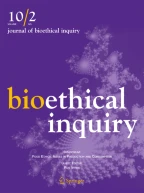Abstract
The World Anti-Doping Agency (WADA) sets out a detailed description of what its own conception of the “spirit of sport” as employed in the World Anti-Doping Code (WADC) entails. However, controversies as to the significance and meaning to be ascribed to the term abound in the literature. In order to unravel the core of the debates and to move discussions forward, the authors aimed at reviewing understandings of the spirit of sport in the conceptual literature. The main databases were searched using relevant keywords. After the inclusion and exclusion criteria were applied, eighteen publications were included in the review. The most striking result to emerge from the data is the multivalence of the concept of spirit of sport. Our thematic analysis generated the contestability of the spirit of sport as the predominant theme in the conceptual literature. There is a need for empirical research to generate data about perspectives on the spirit of sport from other stakeholders especially those of the athletes themselves.
Similar content being viewed by others
References
Beamish, R., and I. Ritchie. 2006. Fastest, highest, strongest: A critique of high-performance sport. Routledge.
Bloodworth, A.J., and M. McNamee. 2017. Sport, society, and anti-doping policy: An ethical overview. In Acute Topics in Anti-Doping, edited by O. Rabin and Y. Pitsiladis, 177–185.
Carolan, E., 2006. The New WADA Code and the search for a policy justification for anti-doping rules. Seton Hall Journal of Sports and Entertainment Law 16(1).
de Hon, O., 2017. The redundancy of the concept of “spirit of sport” in discussions on the prohibited list of doping substances. International Journal of Sport Policy and Politics 9(4): 667–676.
Geeraets, V. 2017. Ideology, doping and the spirit of sport. Sport, Ethics and Philosophy 12(3): 255–271.
Gleaves, J., M.P. Llewellyn, and T. Lehrbach. 2014. Before the rules are written: Navigating moral ambiguity in performance enhancement. Sport, Ethics and Philosophy 8(1): 85–99.
Henne, K., B. Koh, and V. McDermott. 2013. Coherence of drug policy in sports: Illicit inclusions and illegal inconsistencies. Performance Enhancement and Health 2(2): 48–55.
Hsieh, H-F., and S.E. Shannon. 2005. Three approaches to qualitative content analysis. Qualitative Health Research 15(9): 1277–1288.
Kornbeck, J. 2013. The naked spirit of sport: A framework for revisiting the system of bans and justifications in the world anti-doping code. Sport, Ethics and Philosophy 7(3): 313–330.
Liberati, A., D.G. Altman, J. Tetzlaff, et al. 2009. The PRISMA statement for reporting systematic reviews and meta-analyses of studies that evaluate health care interventions: Explanation and elaboration. PLOS Medicine 6(7): e1000100.
Loland, S. and H. Hoppeler, 2012. Justifying anti-doping: The fair opportunity principle and the biology of performance enhancement. European Journal of Sport Science 12(4): 347–353.
Malloy, D.C., R. Kell, and R. Kelln. 2007. The spirit of sport, morality, and hypoxic tents: Logic and authenticity. Applied Physiology, Nutrition, and Metabolism 32(2): 289–296.
McNamee, M.J. 2013. The spirit of sport and anti-doping policy: An ideal worth fighting for. Play True 1: 14–16.
McNamee, M.J. 2012. The spirit of sport and the medicalisation of anti-doping: Empirical and normative ethics. Asian Bioethics Review 4(4): 374–392.
Molloy, J.W., and Adams, R.C. 1987. The spirit of sport: Essays about sport and values. Wyndham Hall Press.
Moston, S. 2013. The spirit of sport? Performance Enhancement & Health 2(2): 74–75.
Mulhall, S.J. 2006. Critique of the world anti-doping code. a. Advocate (Vancouver) 64, 29.
Murray, T.H. 2007. In search of the spirit of sport. Play True 3: 24–6.
Nowell, L.S., J.M. Norris, D.E. White, and N.J. Moules. 2017. Thematic analysis: Striving to meet the trustworthiness criteria. International Journal of Qualitative Methods 16(1).
Ritchie, I. 2014. Pierre de Coubertin, doped “amateurs” and the “spirit of sport”: The role of mythology in Olympic anti-doping policies. The International Journal of the History of Sport 31(8): 820–838.
Ritchie, I. 2013. The construction of a policy: The World Anti-Doping Code’s “spirit of sport” clause. Performance Enhancement & Health 2(4): 194–200.
Savulescu, J. 2016. Doping scandals, Rio and the future of human enhancement. Bioethics 30(5): 300–303.
Savulescu, J., B. Foddy, and M. Clayton. 2004. Why we should allow performance enhancing drugs in sport. British Journal of Sports Medicine 38(6): 666–670.
Tamburrini, C. 2006. Are doping sanctions justified? A moral relativistic view. Sport in Society 9(2): 199–211.
World Anti-Doping Agency (WADA). 2015. World Anti-Doping Code 2015. Canada: World Anti-Doping Agency Montreal.
Waddington, I., A.V. Christiansen, J. Gleaves, J. Hoberman, and V. Møller. 2013. Recreational drug use and sport: Time for a WADA rethink? Performance Enhancement & Health 2(2): 41–47.
Author information
Authors and Affiliations
Corresponding author
Additional information
Publisher’s note
Springer Nature remains neutral with regard to jurisdictional claims in published maps and institutional affiliations.
Rights and permissions
About this article
Cite this article
Obasa, M., Borry, P. The Landscape of the “Spirit of Sport”. Bioethical Inquiry 16, 443–453 (2019). https://doi.org/10.1007/s11673-019-09934-0
Received:
Accepted:
Published:
Issue Date:
DOI: https://doi.org/10.1007/s11673-019-09934-0
